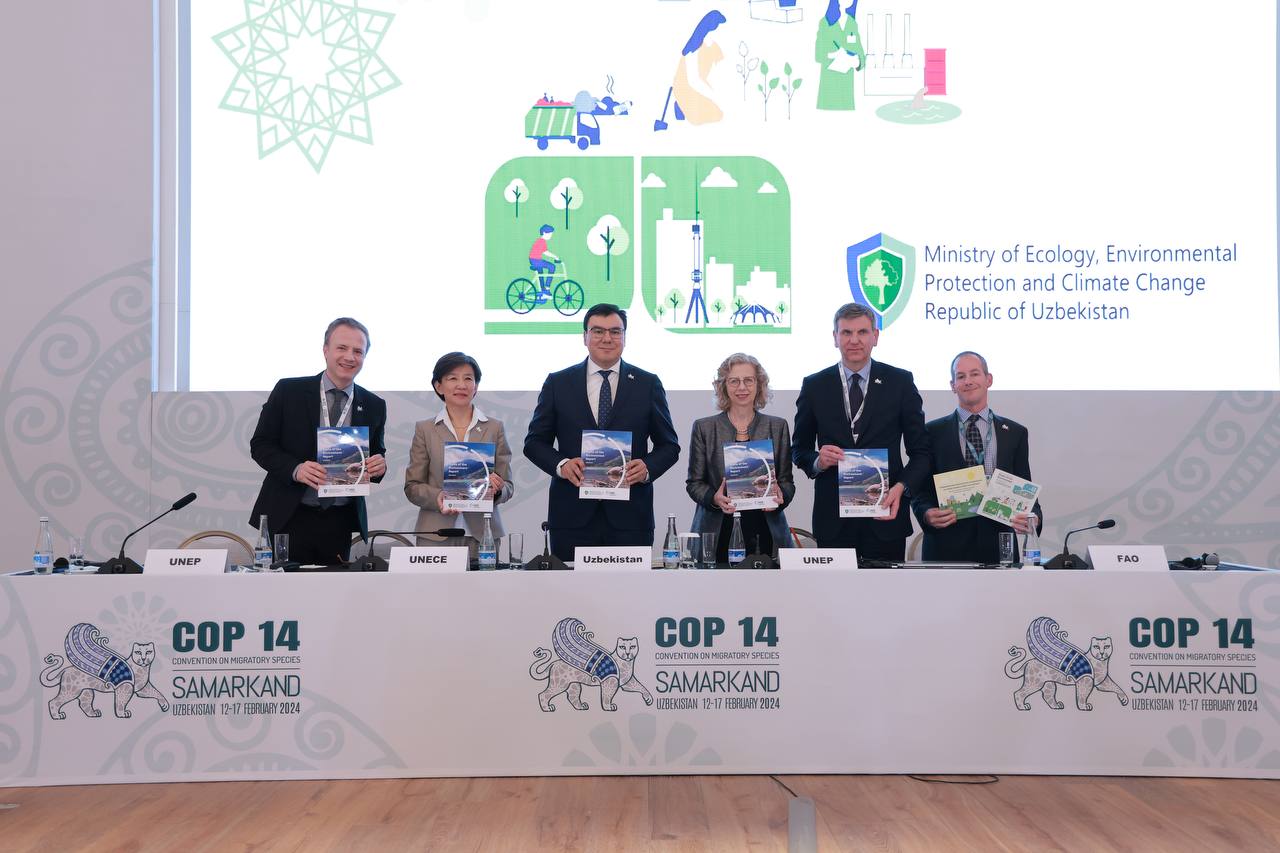
As part of CMS COP-14, a side event was held in Samarkand on February 13, dedicated to sustainable development initiatives, raising public awareness, and participation in the environmental protection process.
The event was attended by Minister of Ecology, Environmental Protection, and Climate Change, Aziz Abdukhakimov, Under Secretary-General of the United Nations, Executive Director of the United Nations Environment Programme (UNEP) Inger Andersen, Viorel Gutu, Deputy Director General for Europe and Central Asia of the Food and Agriculture Organization of the United Nations (FAO), Regional Adviser to the United Nations Economic Commission for Europe (UNECE) Sarangoo Radnaaragchaa, representatives of state and international organizations, scientific communities, the media, and others.
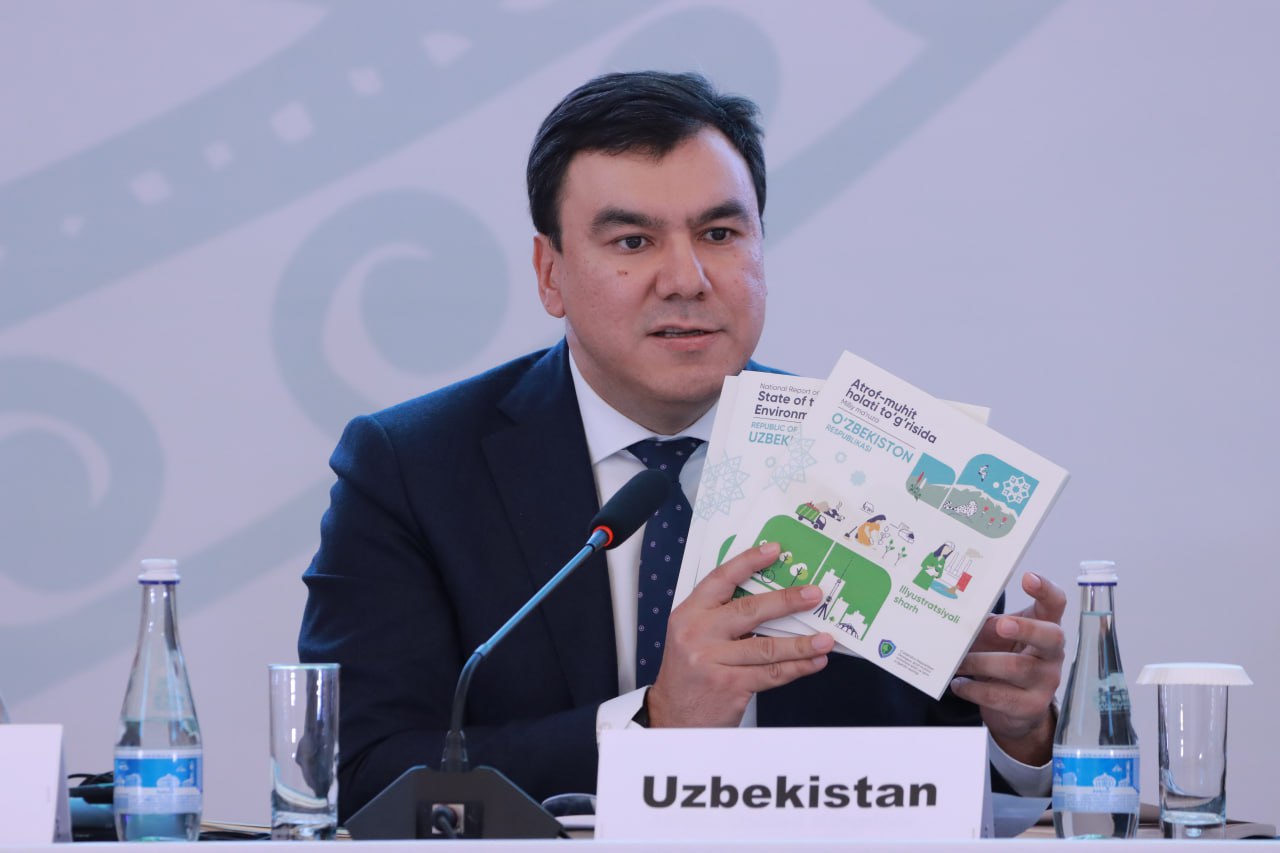
In welcoming speech at the opening of the event, Aziz Abdukhakimov spoke about ongoing initiatives in the country to prevent climate change and protect nature, including holding youth races, conferences, and round tables, planting trees within the framework of the national "Yashil Makon" project, the opening of the Central Asian University Green University in Tashkent, etc. The Minister also expressed gratitude to the partners, experts, and editors for the joint project.
"We invest in the development of environmental books, reports, visual materials, and manuals. As a result of our cooperation with UNEP, FAO, UNECE, Zoi Environment, CEPF, and Zamin Fund, we have prepared recommendations on food waste reduction, eco-tourism, a visual report, and an infographic for the environmental report", said the Minister.
During the event, new publications of the Ministry of Ecology were presented: the National Report of the Republic of Uzbekistan on the state of the environment and its illustrated overview, the FAO Guide to Reducing Food Waste, and a presentation on the development of ecotourism and ensuring the sustainability of nature in Uzbekistan: tips for tour operators, local authorities, and visitors.
The National Report on the State of the Environment is a comprehensive document on the current environmental situation and trends in the context of the socio-economic development of the country. He also provides an overview of relevant policy priorities, strategies, and other documents designed to outline a plan of measures to address environmental problems. It reflects the Republic's international obligations set out in the Sustainable Development Goals, multilateral environmental agreements, and other international documents aimed at solving problems related to human health and well-being in the context of environmental quality. The report was prepared with the support of the UNECE, UNEP, the International Institute for Sustainable Development, FAO, and the Zoï Environmental Network.
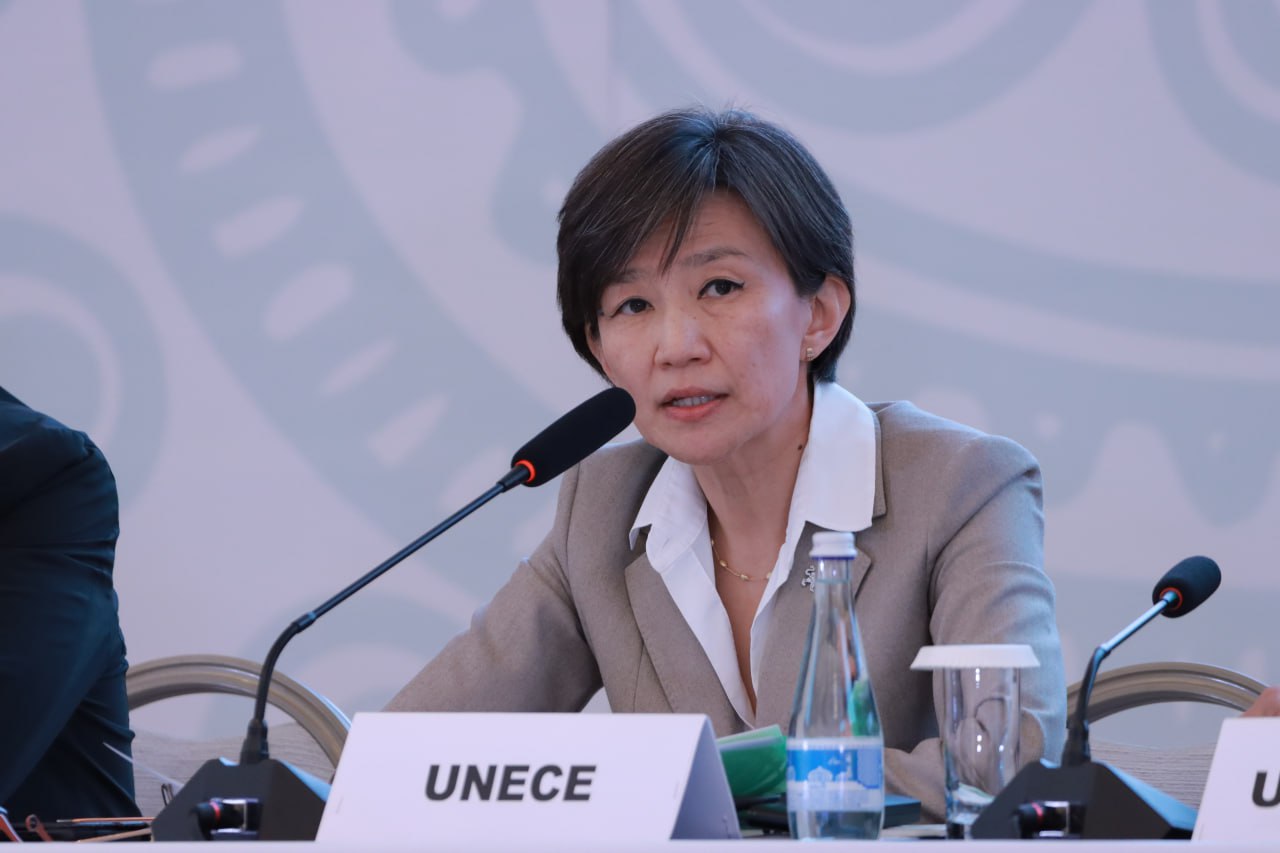
.jpg)
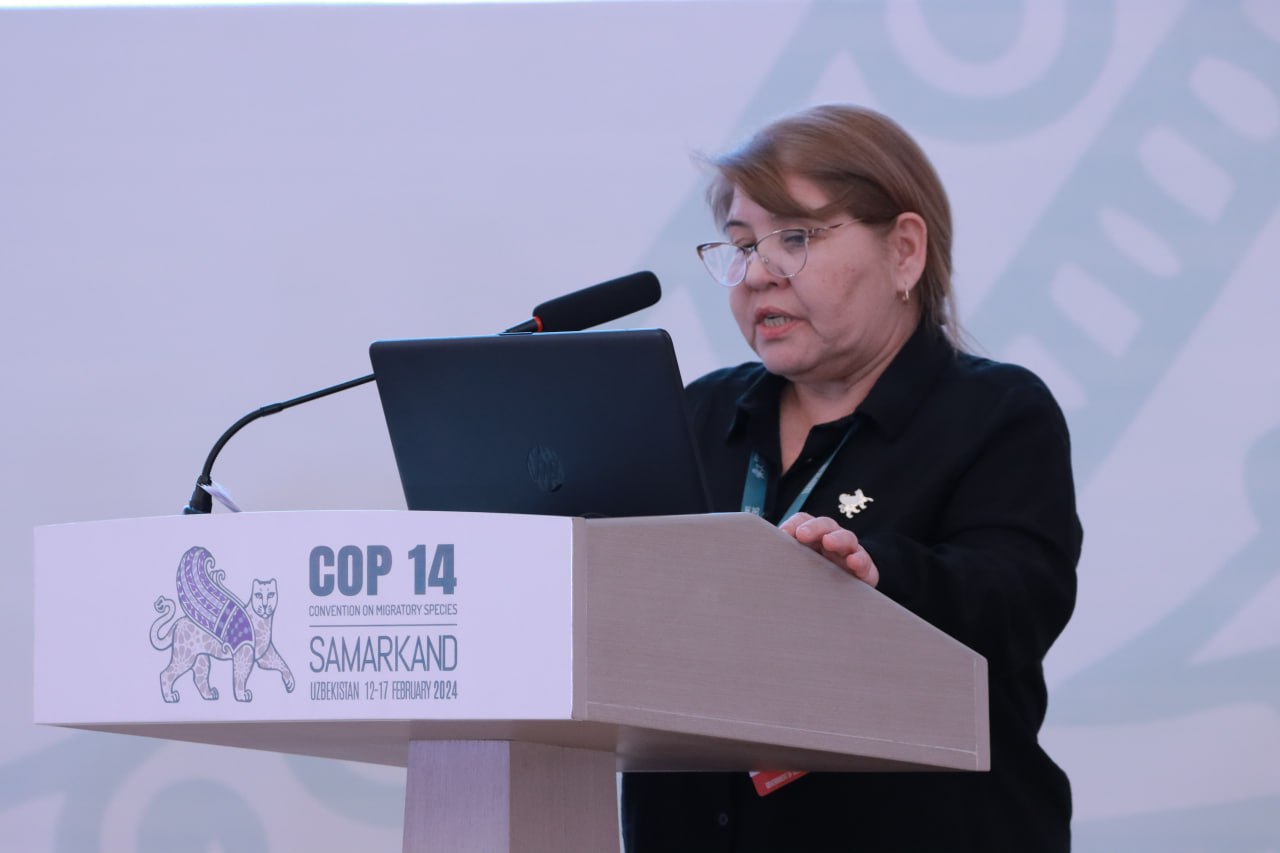
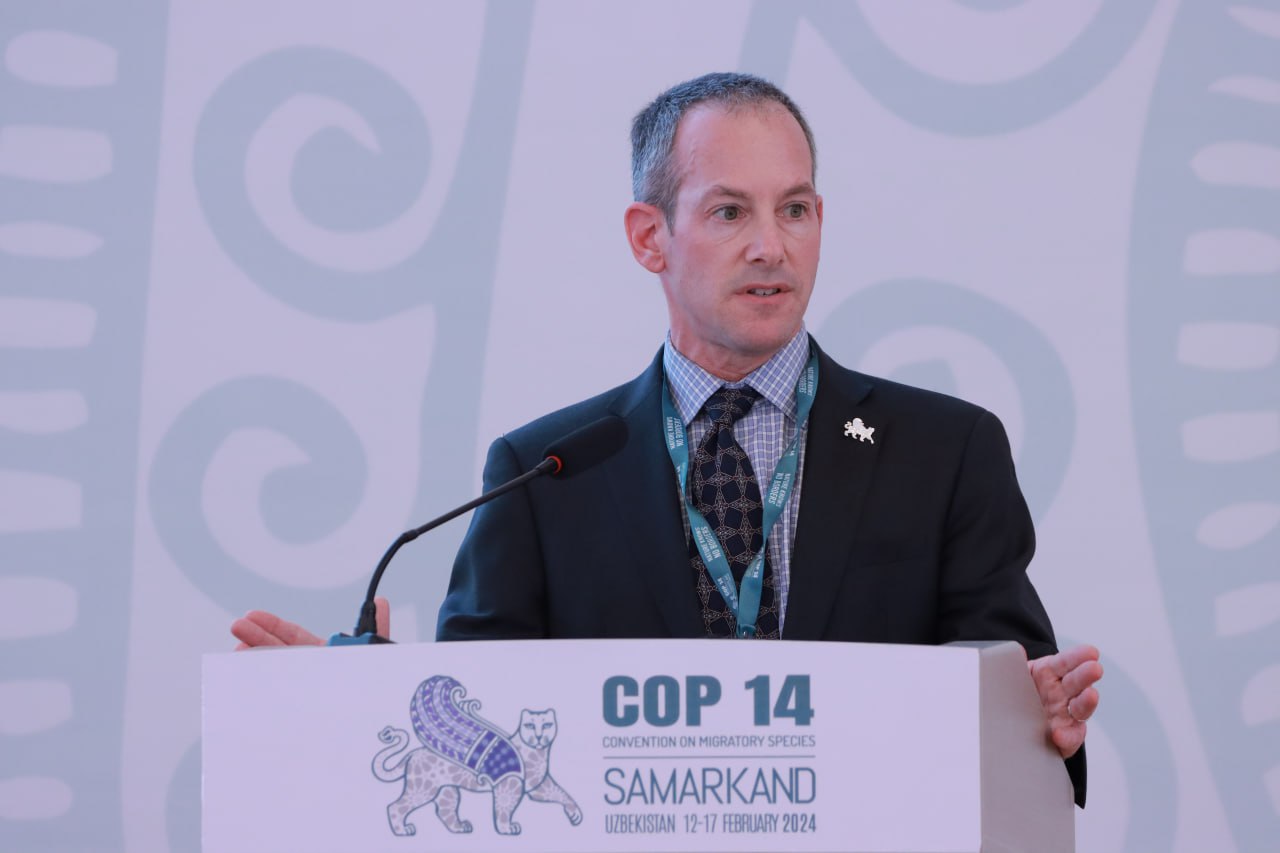
The FAO Food Waste Reduction Guide contains practical tips and recommendations for preventing the formation of such waste. This publication will support everyone on the way from buying to consuming food products. Following these practical tips and recommendations presented in the format of infographics, everyone can and should change their behavior patterns and make appropriate decisions to review everyday habits, which very often cause the formation of unreasonably large amounts of such waste.
Another initiative of the Ministry of Ecology of Uzbekistan is a new publication dedicated to the development of ecotourism and ensuring the sustainability of nature in Uzbekistan. It is presented in the form of a colorfully illustrated memo for travel operators, local authorities, and tourists. The reader can find in it information about the natural and cultural attractions of the mountainous zone of the republic, tourist seasons, and most importantly, the benefits and risks to nature from tourism, as well as the answer to the question of what needs to be done to reduce the negative human impact on the mountain ecosystem.
It is worth noting that these publications are designed to raise public awareness to enhance its participation on the path to sustainable development. To find out more about the National Report on the state of the country's environment, follow the links:











